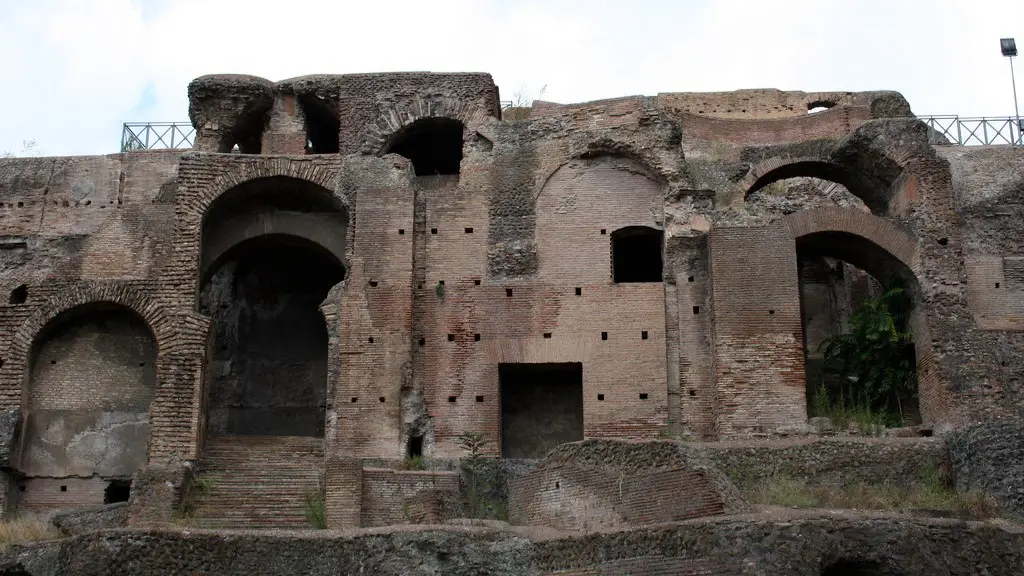Roman Language Development
The language of the ancient Romans was Latin. This language developed over centuries and spread throughout the wider Roman Empire. During the time of the Roman Republic and the Roman Empire, Latin was the main language of communication between the Romans and other peoples. Latin was used to express ideas, and to write legal documents, literature, and poetry. As the Latin language shifted and evolved, new words and expressions were created.
At the same time, the Romans borrowed words from other languages and incorporated them into Latin, including Greek, and even other languages like Germanic and Celtic. By the time of the Roman Empire, Latin was a vibrant language with plenty of linguistic variations.
Roman Language and Social Status
In ancient Rome, there were different levels of knowledge and proficiency in Latin. Depending on an individual’s social status, the degree of knowledge of Latin varied among different individuals. Generally speaking, upper-class citizens were taught to read, write, and speak Latin, whereas lower-class citizens were not.
Latin was the language of the elite. Those in the lower classes who did not have knowledge of the language were mainly confined to manual labor and menial tasks. However, some lower-class individuals could gain knowledge of Latin by studying and learning the language on their own.
Traditional Roman Latin
The Latin language of the ancient Romans evolved over the centuries. It gradually shifted from a language spoken by the people to a language primarily used to communicate between social classes. This shift is important because it displays the power of communication and the role of language in determining social stratification.
The traditional Roman Latin was highly structured and analytical. It used complex sentences and often difficult vocabulary. This was not casual speech, but language reserved for literature, politics and religious ceremonies. Despite this formality, the language was used by everyday Romans in their daily lives and in the law courts.
Vulgar Latin
Over time, the Latin language developed different dialects and evolved into what is now known as Vulgar Latin. This more vernacular form of Latin was used mainly by commoners and was used in everyday speech. Vulgar Latin was flexible, portrayed emotion, and often used paraphrasing and circumstances to make communications easier. The ultimate result of these changes was the Romance languages of Europe, which grew out of the Vulgar Latin of ancient Rome.
Dialects and Colloquialisms
Latin was not a static language; like modern languages, it changed and evolved over time. In the early stages, Latin had distinct dialects which were spoken in different parts of the Roman Empire. As the Roman Empire expanded, certain dialects became dominant while others became extinct.
Along with dialects, colloquialisms were also used in the Roman Empire. Colloquialisms were words and phrases used in casual and everyday speech, often for humor or emphasis. Colloquialisms generally illustrated the culture of the times, as well as the way people communicated.
The Legacy of Roman Language
Latin remained the language of the Roman Empire until its fall in 476 AD. Despite its decline, Latin words and expressions persisted in modern language; many words used in English and other European languages have their roots in Latin.
In addition, the legacy of the Roman language is reflected in modern scholarship in the fields of literature, law, history, and classical studies. Through its continuous study, Latin influences and influences language and culture today.
Latin in Religion and Education
Latin was the language for much of the religious knowledge in the ancient Roman Empire. Therefore, Latin was the language used in religious ceremonies and liturgical writing. Latin was also the language used in instruction and teaching, both at home and in public schools. Latin textbooks and works of literature have been used throughout the centuries to pass on knowledge.
In addition to religious instruction and teaching, Latin was used by military officers, merchants, and bureaucrats in carrying out their daily tasks and duties. Latin was also used in architecture and engineering.
The Decline of Latin
Despite the long-lasting legacy of the language, Latin was eventually replaced by the vernacular languages, such as Italian and French. By the Middle Ages, Latin was spoken much less and was mostly used by educated elites and clergy.
In addition, many of the dialects of Latin developed into their own languages, such as Spanish, Portuguese, French, and Italian. These languages were a combination of Latin and different native languages that were spoken in the regions.
Latin in Modern Times
Today, Latin is still used in certain legal and scientific terms, and is still studied by people who wish to understand the language used by the ancient Romans. Latin is also the language of the Roman Catholic Church and is used in the liturgy of many churches. While it might not be used in an everyday setting, Latin remains an influential language that informs the thinking and culture of modern society.


